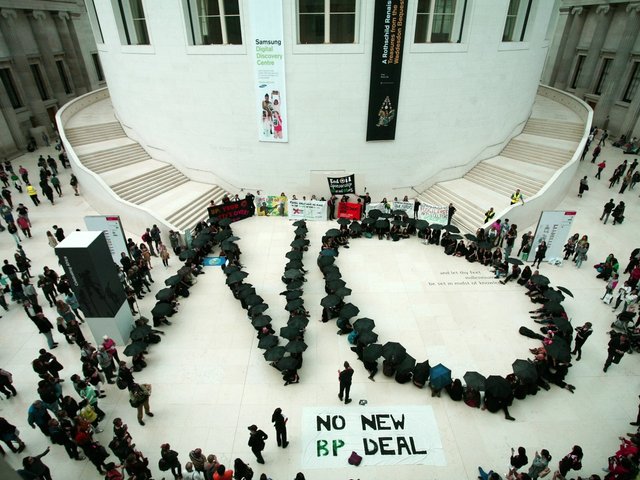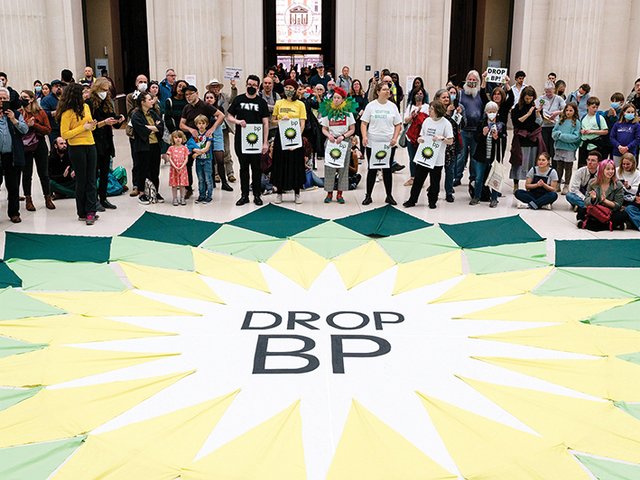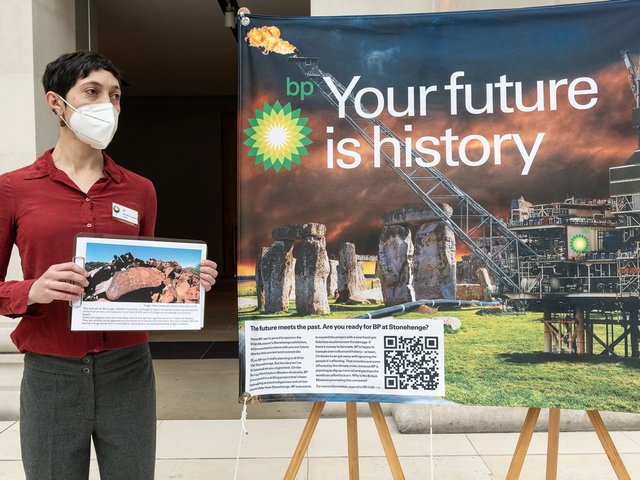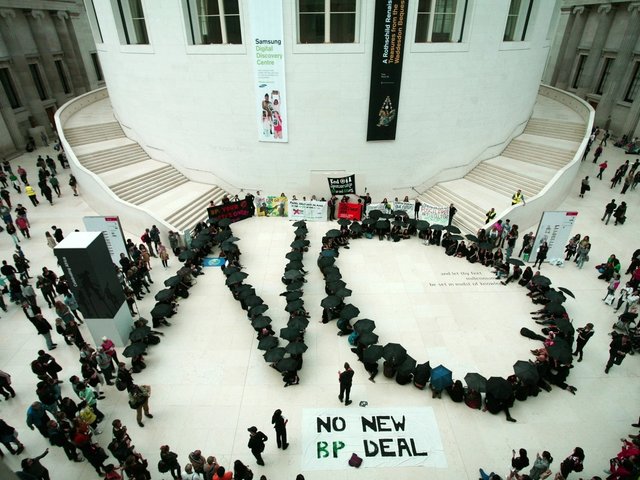An open letter signed by more than 90 archaeologists and heritage professionals is calling for the British Museum to end its longstanding sponsorship arrangement with the oil company British Petroleum (BP) whose activities are “entirely at odds with values of humanistic enquiry and education”, say the signatories. In the wake of the “unprecedented climactic and environmental crisis now facing humanity… we are therefore writing to urge you to end your sponsorship relationship with BP”, they say.
The letter was initiated by the France-based archaeologist and postdoctoral researcher Natasha Reynolds. “I’ve been interested in the ethics of archaeological research for a few years from the point of view of decarbonisation. With the letter, I wanted to make it clear that there is plenty of feeling in the archaeology and museum community about this issue,” she tells The Art Newspaper. Signatories include Malcolm Chapman, the head of collections management at the Hunterian museum in Glasgow, and Alison Gascoigne, an associate professor of archaeology at the University of Southampton.
The letter states that “recently, some companies, including BP, have announced ambitions to become ‘net zero by 2050’, seeking to create the impression that they can be trusted to manage the energy transition themselves”. BP continues to use sophisticated public relations techniques to manage its image and discourage scrutiny of its activities, it adds. “We believe that BP’s ongoing sponsorship of the British Museum should be seen in this light, as part of a strategy of reputational management.” At the time of writing, BP had not responded to a request for comment.
The signatories do not believe that “BP offers a necessary or sustainable solution” despite the financial challenges faced by the UK culture sector in the wake of the pandemic. BP's annual contribution represents a very limited proportion of the museum’s overall income—less then 1% according to the campaign group BP or not BP?—and has been described by a former trustee, Ahaf Soueif, as “not unattainable elsewhere”, the letter says. Soueif resigned from the museum board in 2019, saying that the museum “needs to take a clear ethical position”.
A British Museum spokeswoman confirmed that the British Museum and the National Portrait Gallery are among four cultural organisations to receive sponsorship from BP as part of a £7.5m deal that came into effect in 2018, and will extend over five years.
The spokeswoman adds: "As a major UK visitor attraction, we are conscious of the impact of our activity on the environment. We are committed to reducing that impact and improving our sustainability throughout all aspects of the British Museum’s operation and supply chains, from energy usage to waste management, from buildings to programming, from our global collaborations to new connections."
"The British Museum receives funding from BP, a long-standing corporate partner, to support the museum’s mission, providing public benefit for a global audience through their support for galleries, education facilities, curatorial posts and research projects. Without external support much programming and other major projects would not happen. The British Museum is grateful to all those who support its work in this time of reduced funding."
On the museum website, BP says that the company’s partnership with the British Museum began in 1996 “enabling a diverse range of initiatives including the development of the BP lecture theatre. Today support for the museum is focused on its special exhibitions programme.” In 2018, BP sponsored the British Museum exhibition I Am Ashurbanipal: King of the World, King of Assyria and it most recently supported Nero: the Man Behind the Myth.
Earlier this month, two trustees resigned from the board of the UK Science Museum Group because the institution has signed a sponsorship deal with the fossil fuel company Adani.






